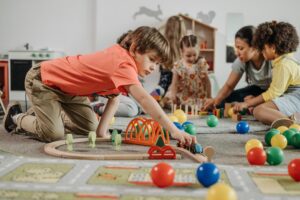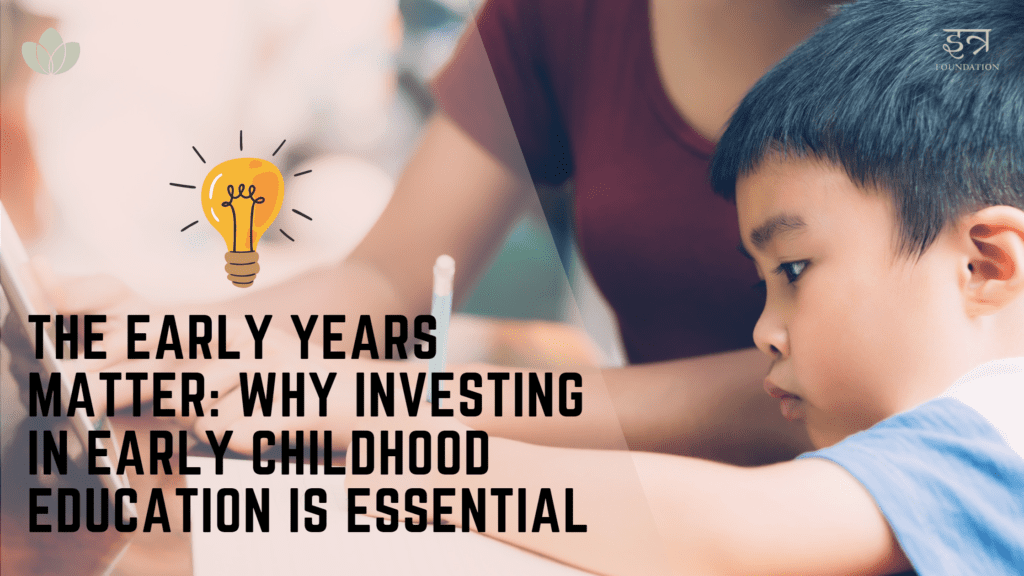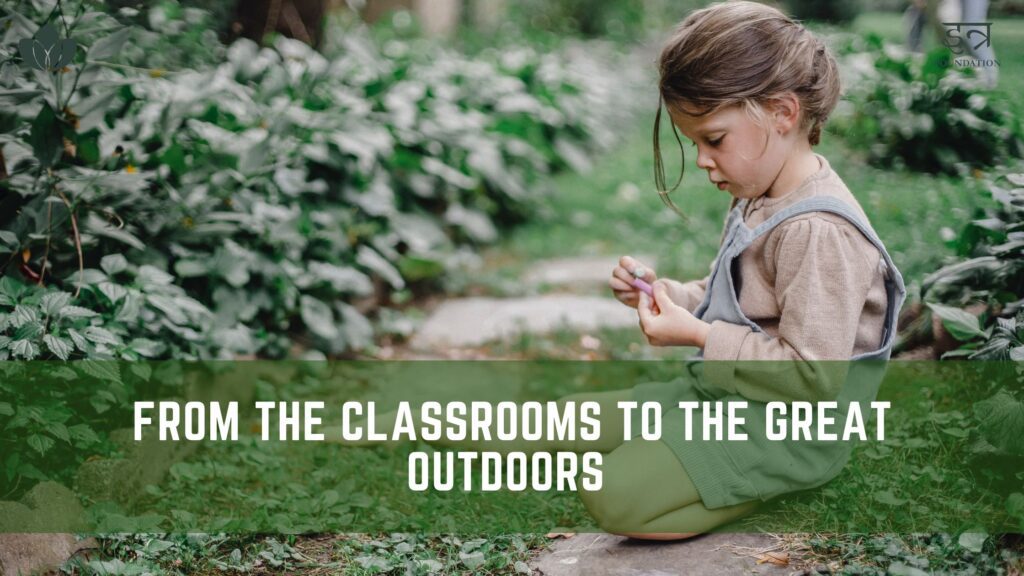Early childhood education is a critical period in a child’s development, as it lays the foundation for their future learning and development. During this stage, children’s brains are rapidly developing and they are absorbing and learning new information at a rapid pace. By providing young children with a nurturing and stimulating environment, we can ensure they have the best possible start in life During the early childhood stage, children typically experience a wide range of developmental milestones, including physical, cognitive, social and emotional growth. These milestones include things like learning to crawl, walk, run, develop language skills, learn to take turns, share and develop a sense of self. By providing children with the right support and opportunities, we can help them reach these milestones and set them up for success in the future.
Cognitive Development


Cognitive development is a crucial aspect of a child’s growth, development and early childhood education plays a vital role in supporting this development. During the early years, children’s brains are rapidly developing and they are constantly absorbing information and making connections. Early childhood education provides children with a variety of experiences and opportunities to learn, explore and discover the world around them.
Language development is an important aspect of cognitive development in early childhood. Early childhood education provides children with opportunities to develop their communication skills through activities such as storytelling, song and rhymes. Children also learn to understand and use language through interactions with their teachers and peers.
Memory is another cognitive skill that is developed during early childhood. Early childhood education provides children with opportunities to practice their memory skills through activities such as matching, sorting and recalling information. Research has shown that children who participate in early childhood education have better memory skills than those who do not.
Problem-solving skills are also developed during early childhood. Early childhood education provides children with opportunities to practice and develop their problem-solving skills through activities such as puzzles, blocks, and games. These activities help children to learn how to think critically and creatively and how to find solutions to problems.
Overall, early childhood education plays a crucial role in supporting cognitive development in young children. Studies have shown that children who participate in high-quality early childhood education programs have better language, memory and problem-solving skills than those who do not. The benefits of early childhood education extend beyond cognitive development and into academic, social and emotional development as well.
Social-emotional Development


Social-emotional development is a crucial aspect of a child’s growth and early childhood education plays a vital role in fostering it. During the early years, children are developing their sense of self, learn how to regulate their emotions and build the foundation for relationships with others.
Early childhood education programs provide children with opportunities to interact with their peers, learn how to share and take turns, and develop empathy and emotional intelligence. Children who attend preschool or daycare are exposed to a diverse group of people, which helps them learn how to navigate social interactions and build relationships. Research has shown that children who attend early childhood education programs have better social-emotional development than those who do not. Studies have found that children who attend preschool have better self-regulation, are more empathetic and have better emotional intelligence than those who do not.
Early childhood education programs also provide children with a safe and supportive environment where they can learn and grow. Teachers and caregivers in these programs are trained to recognize and respond to children’s emotional needs and provide them with appropriate support and guidance.
Furthermore, early childhood education programs often include activities and curriculum that are designed to promote social-emotional development, such as circle time, where children learn how to take turns and share, or activities that promote empathy and kindness.
Overall, the role of early childhood education in promoting social-emotional development is vital for children’s overall growth and development. It provides children with the necessary tools and support to navigate their social and emotional world, build positive relationships and become well-adjusted adults.
Physical Development


Physical development in early childhood is a critical aspect of overall growth and development. Early childhood education plays a crucial role in supporting children’s physical development, including gross motor skills and fine motor skills. Gross motor skills refer to the larger movements of the body, such as walking, running and jumping. These skills are important for children’s overall mobility and physical fitness. Fine motor skills, on the other hand, refer to the smaller movements of the body, such as writing, drawing and manipulating small objects. These skills are important for children’s dexterity, coordination and hand-eye coordination.
Research has shown that early childhood education can have a positive impact on children’s physical development. For example, studies have found that children who attend high-quality early childhood education programs tend to have better gross motor skills compared to those who do not attend such programs. Additionally, children who attend early childhood education programs with an emphasis on play-based learning tend to have better fine motor skills than those who do not attend such programs.
Moreover, early childhood education programs that incorporate physical activities and movement into the curriculum can have a positive impact on children’s physical development. For example, programs that incorporate activities such as dance, sports, and yoga can help children develop their gross motor skills and improve their physical fitness. Furthermore, activities such as arts and crafts and block play can help children develop their fine motor skills.
The Importance of Play


Play is an essential component of early childhood education and plays a crucial role in the overall development of children. Through play, children learn new skills, explore their environment and develop their creativity and imagination. Play also provides children with the opportunity to practice and apply what they have learned, as well as to express themselves emotionally.
There are different types of play that are beneficial for child development. Sensory play, for example, allows children to explore and experiment with different textures, sounds and smells, helping them to develop their sense of touch, hearing and smell. Dramatic play, on the other hand, allows children to act out different roles and scenarios, helping them to develop their social skills and emotional intelligence. Construction play, such as building with blocks, helps children to develop their fine motor skills and problem-solving abilities.
Research has shown that play-based learning in early childhood education can have a significant impact on children’s cognitive, social-emotional, and physical development. For example, studies have found that children who engage in play-based learning have better language skills, improved memory and problem-solving abilities and stronger emotional regulation. Additionally, play-based learning can also help children develop important physical skills such as fine and gross motor skills, coordination and balance.
Conclusion
In conclusion, play is an integral part of early childhood education and plays a crucial role in children’s overall development. It provides children with opportunities to explore, learn and express themselves and it is important to provide children with a variety of play experiences to support their growth and development.
In the conclusion of the blog post on the importance of early childhood education for children’s development, it’s crucial to summarize the key points discussed in the blog post. This includes the importance of early childhood education in cognitive, social-emotional and physical development, as well as the importance of play in early childhood education.
It’s also important to discuss the long-term benefits of early childhood education. Research has shown that children who receive high-quality early childhood education are more likely to be successful in school and have better outcomes in their adult life. They are more likely to graduate high school, attend college, have higher earnings and be less likely to be involved in crime. Early childhood education provides a strong foundation for children’s overall development and it is essential to invest in it to ensure that all children have the opportunity to reach their full potential.
Moreover, it is also important to remind the readers that investing in early childhood education is not just a responsibility of the parents or the government, but it is a collective responsibility of the society, by providing the appropriate resources and creating awareness of the importance of early childhood education. By highlighting the long-term benefits of early childhood education and the importance of investing in it, the blog post can be a valuable resource for parents, educators and policymakers, encouraging them to prioritize and support early childhood education.




